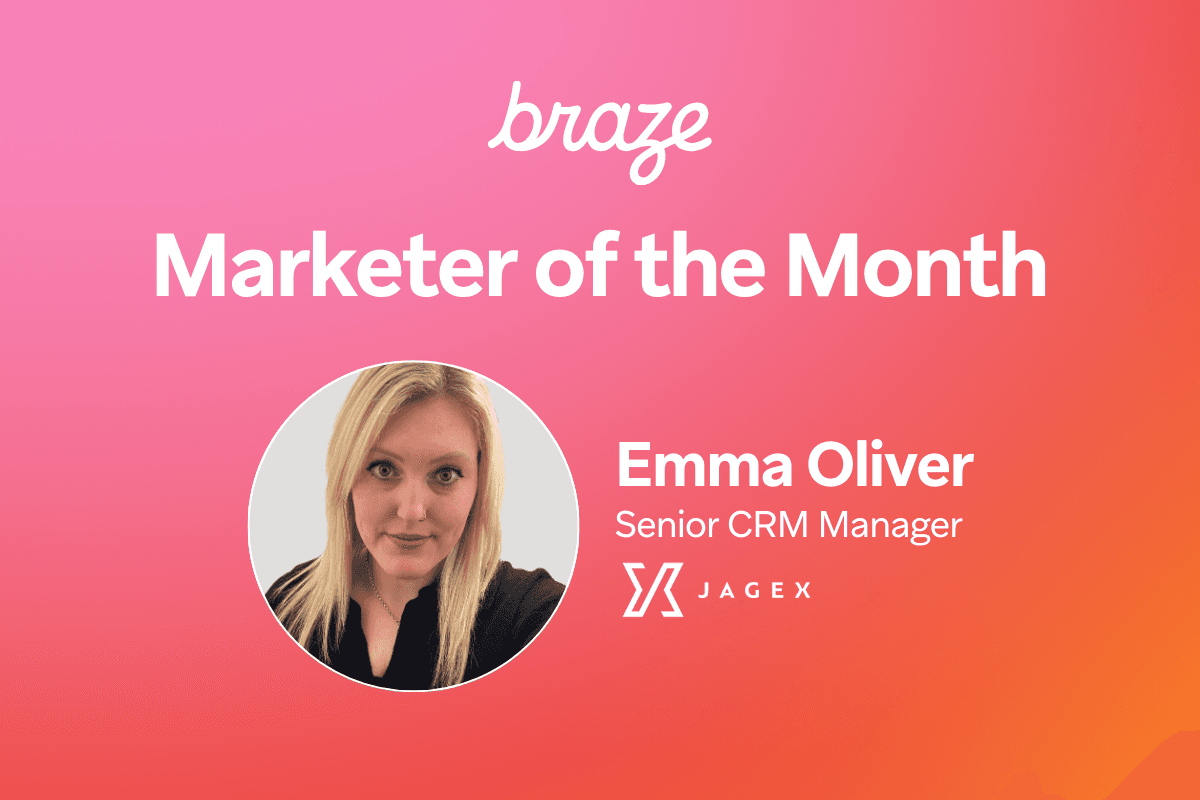Decide What Your Values Are—And Stick to Them
Published on May 24, 2017/Last edited on May 24, 2017/6 min read


Team Braze
What does your brand stand for?
Your company’s values are at the heart of everything you do. Without a firm grip on what your brand truly stands for, your efforts to connect with customers are going to fall flat. But if you use your marketing to show customers what your brand actually represents, they’ll respect you for it.

Tamika D. Mallory, national co-chair of the Women’s March on Washington, speaks with Vanity Fair’s Mike Hogan at LTR 2017
Civil rights activist and national co-chair of this year’s Women’s March on Washington Tamika D. Mallory spoke to this issue when she hit the stage at this year’s LTR conference. “A friend to everyone is a friend to no one,” she said. “People need to know that they can trust your leadership. They want to know who you are before they follow you.” And while Mallory’s remarks were primarily addressed to political and activist groups, the same principle applies to brands. Customers appreciate transparency, and those who share your core principles and values are much more likely to become loyal brand advocates down the line.
Let’s take a look at five companies who’ve found success with value-driven brand experiences:
1. DOVE
Dove believes their soap and personal hygiene products should give users of all ages, races, and body types the confidence to feel good in the skin they’re in. This ethos is present throughout a variety of bold, award-winning campaigns (remember Real Beauty?).
More recently, Dove has communicated its values through the #SpeakBeautiful movement to help counter body-negative posts on social media, as well as campaigns like Beauty Portraits or Women Get Told, where they turned the lens on users across the globe to help redefine culturally accepted standards of beauty and the female identity. All of these efforts align perfectly with ‘The Dove Real Beauty Pledge,’ a recently published manifesto reaffirming their values to the users all over the world. In it, they announced they’d no longer hire models for the promotion of their products—all new campaigns would feature real, everyday women only.
2. PANERA BREAD
How many quick service restaurants can say that their food is 100% clean? Panera Bread can. With core values that speak to clean consumption and healthy lifestyles, Panera’s put a lot of effort into making this possible at scale. Their 2015 ‘Food as It Should Be’ campaign served as a launch pad for these initiatives by revealing calories, ingredients, and nutritional information for every item on their menu.
Now, Panera Bread has proudly announced (with 100% certainty) that their menu is 100% free of artificial preservatives, sweeteners, flavors, or colors from artificial sources. They’ve even published “The No No List,” a full listing of ingredients that they promise to keep out of their pantries.
3. WARBY PARKER
Everyone should have access to better vision. At least, that’s the principle that Warby Parker was founded on. Warby Parker CEO Neil Blumenthal worked to challenge the eyewear industry’s business model by granting people access to affordable eyewear online. The company also allow customers a full view into their business operations. On their website, Warby Parker details their partners, their business model, the materials they use, along with a social and environmental service report card to show how they are doing at living up to their values.
This same dedication to access inspired “Buy a Pair, Give a Pair,” a program that makes it easier for people in emerging economies to buy affordable eyewear. When Warby Parker customers buy a new glasses, the company donates part of the profits to nonprofits that train small business owners to perform eye exams and provide glasses at reasonable prices, making eyecare more available to communities all over the world.
4. JETBLUE
JetBlue is “always up for good.” With a long-time dedication to safety, caring, integrity, passion, and fun, JetBlue works hard to create positive human experiences, both in the air and on the ground. They’re known for having a fun, witty brand voice, which works to communicate just how down to earth they are. As a service, they’ve invested heavily in creating comfortable, enjoyable flying experiences for customers in every class. As a result, they’ve consistently scored as one of the top five U.S. airlines in Temkin’s Experience Ratings Reports year after year.
Fun fact: JetBlue is the first airline to ever launch a foundation solely designed to support aviation-related education. This value-driven initiative has awarded nearly $400,000 in grants and aid towards students interested in furthering their STEM education. In addition, they’ve launched charitable service programs that support community development and environmental protection around the world.
5. AMAZON
“Customer obsession. Learn and be curious. Deliver results.” These are just a few of the leadership principles that guide Amazon employees around the world. These principles support the work needed to meet the standards of over 110 million active users each day. Dedicated to building long-term customer relationships, the company pays close attention to user interests and behaviors. Using this data, they make personalized recommendations based on past purchases, ratings, and reviews. This makes for an extremely thoughtful user experience.
Amazon employees also deeply value trust and seek to earn it at every turn. For instance, sellers must trust that the retailer is built to handle any hassles associated with commerce. To meet these expectations, Amazon has maintained high standards for packaging and delivery times, while keeping shipping prices lower than competitors. Buyers enjoy the same sense of security. To maintain transparency, they make sure to reach out to users with any relevant information—even if that means they lose out on making extra money. They’ve also enabled a verified purchase system to boost the credibility of any review you see on their site.
Value begets value. In a survey conducted by SurveyMonkey, Americans ranked Amazon in the top five for “most influential” among other Fortune 100 companies. It also placed No. 1 in the “most trustworthy” and “company you’d most like to invest in” categories.
THE BOTTOM LINE
You can’t fake caring. No million-dollar ad campaign is going to change that.
Your brand’s values should be the foundation on which your entire company stands. Without them, your customers will see right through you, and you’ll ultimately lose their trust and support. Our advice? Determine what your brand’s core values are, and embed them into your marketing. Allow them to drive your goals and your outreach strategy. Strive for consistency. Trust that what you stand for is worth it (because it probably is).
Be Absolutely Engaging.™
Sign up for regular updates from Braze.
Related Content
View the Blog
How behavioral marketing turns data into personalized experiences

Team Braze

Experience optimization: Turning data insights into better journeys

Team Braze

December 2025 Bonfire Marketer of the Month: Jagex’s Emma Oliver
